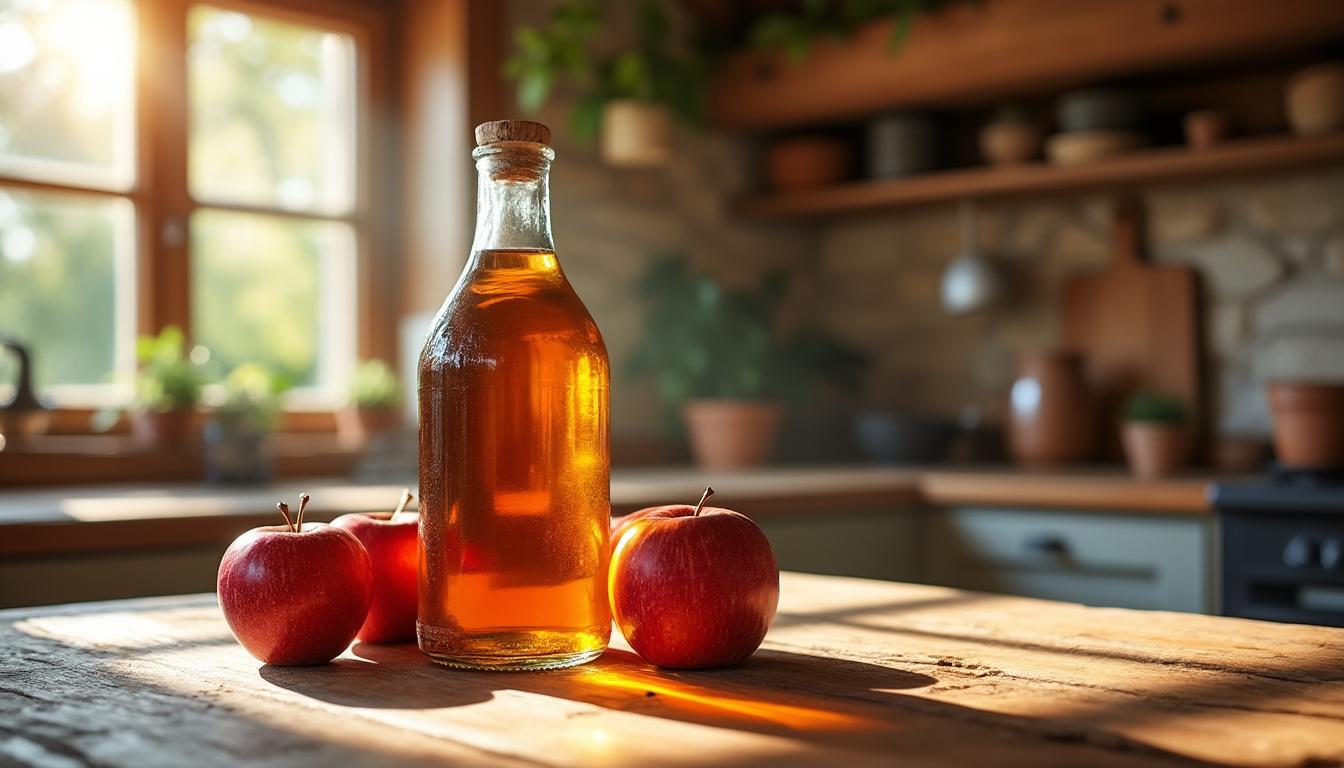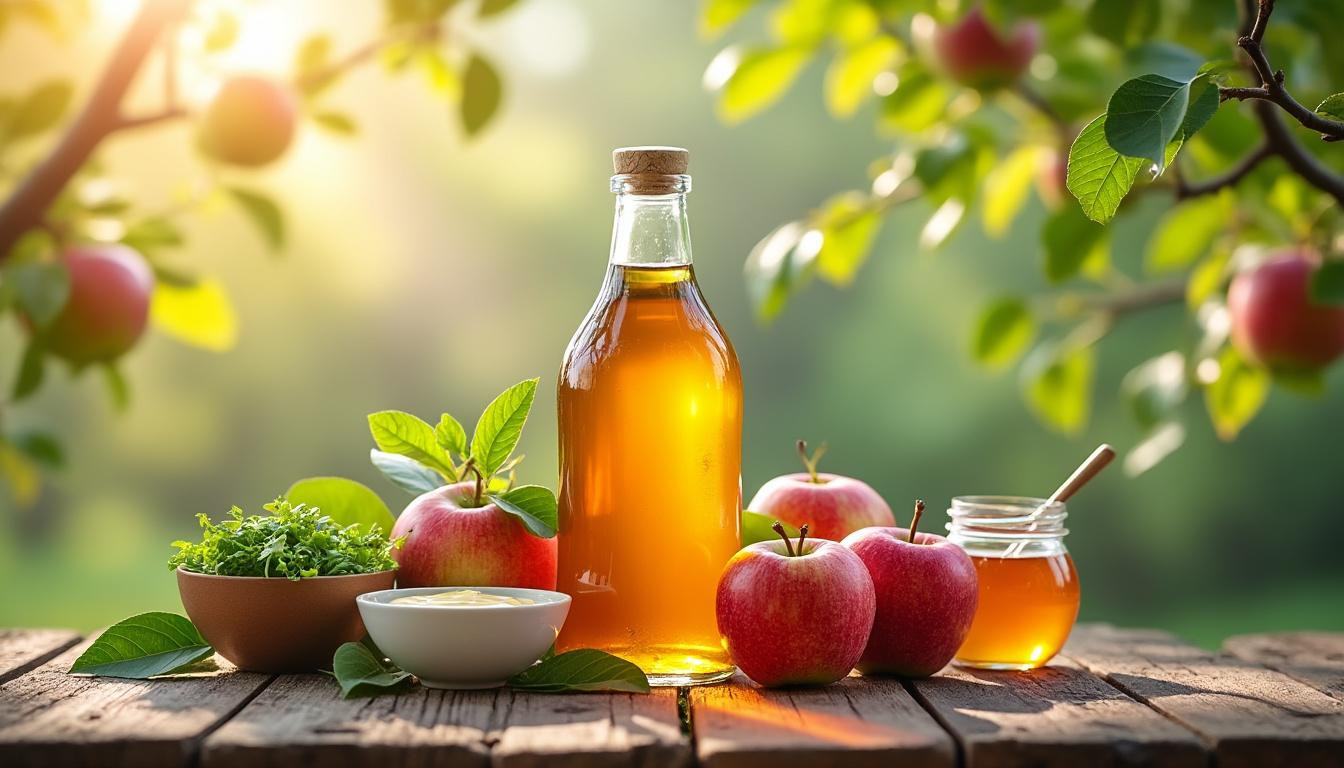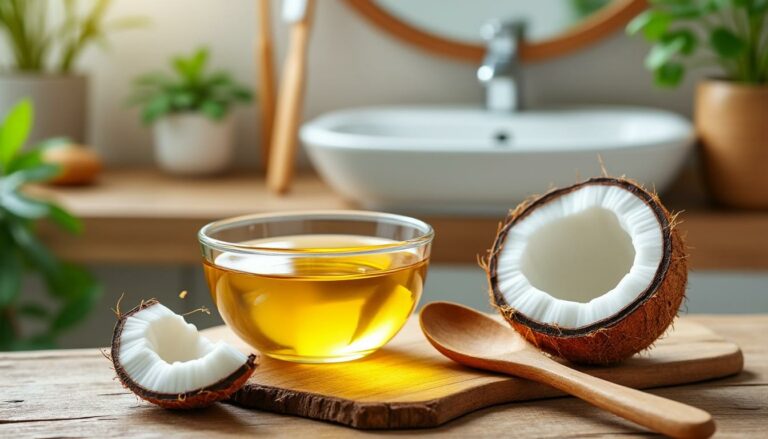What is apple cider vinegar? Insights into its benefits
Apple cider vinegar (ACV) has journeyed from farmhouse pantry to modern wellness icon. Fermented from crushed apples, this sharp-tasting liquid carries a legacy of folk remedies and, today, a growing stack of scientific papers.
Yet many households still wonder: does that cloudy bottle on the shelf truly help balance blood sugar, lighten waistlines, and soothe skin— or is it just sour hype?
Good news: careful research combined with generations of kitchen wisdom now shows practical ways to harness ACV safely, whether you homestead off-grid, tackle city stress with minimalist habits, or prepare for any emergency. The guide below unpacks every step so you can decide how, when, and why to use apple cider vinegar with confidence.
Apple cider vinegar chemistry: from orchard to bottle
Let’s break this down in simple terms: fresh apple juice ferments twice—first into alcohol, then into vinegar—thanks to wild yeast and friendly bacteria. The second ferment produces acetic acid (about 5–6 %), plus a web of proteins and enzymes called “The Mother.”
- 🍎 Yeast turns sugars into alcohol.
- 🦠 Acetobacter bacteria convert that alcohol into acetic acid.
- 🌫️ “The Mother” appears as cloudy strands rich in probiotics.
| Key Compound 🧪 | Main Role | Typical % |
|---|---|---|
| Acetic Acid | Sour taste, antimicrobial action | 5-6 % |
| Polyphenols 🍏 | Antioxidant activity | Trace |
| Minerals ⚡ | Potassium, magnesium, calcium | <1 % |
| “The Mother” 🌀 | Probiotics & enzymes | Varies |

Why raw and unfiltered matters
Filtered brands remove the Mother for clarity, but that also strips beneficial microbes. When shopping, look for words like “raw,” “unpasteurized,” or labels from trusted makers such as Bragg, Heinz, or Spectrum Organic.
Evidence-backed benefits you can measure
Stable blood sugar and sharper energy
Several human trials show ACV can lower after-meal glucose spikes by up to 34 %. That’s promising for anyone monitoring type 2 diabetes or aiming to avoid afternoon crashes.
- 🩸 Drink a diluted tablespoon before carb-heavy meals.
- ⏱️ Combine with slow-release fiber for steadier results.
- 📈 Track with a glucometer or wearable monitor for proof.
| Study (Year) | Participants | Outcome 📊 |
|---|---|---|
| Cleveland Clinic Review (2023) | 120 adults with T2D | ↓ HbA1c 0.4 % |
| Meta-analysis (2024) | 9 trials | Each 1 ml ACV → ↓ fasting glucose 1.25 mg/dL |
Weight-management ally
Feeling fuller on fewer calories is vital during backcountry treks or desk-bound days alike. ACV’s acetic acid can delay gastric emptying, nudging satiety hormones. Expect modest shifts, not miracles, and pair with daily movement.
- 🥗 Add 2 tsp to salad dressing for an easy habit.
- 🏃 Emphasize protein and vegetables to amplify results.
- 📅 Evaluate progress after 8–12 weeks, the window used in most trials.
Heart and immunity safeguards
Early data links ACV to lower LDL/HDL ratios and antimicrobial action against E. coli and Candida. While the antiviral plant allies on SelfReliantWellness.com remain frontline defenses, ACV adds a portable layer.
Practical uses: sip it, cook it, or apply it
Kitchen tactics for everyday meals
ACV’s tang brightens food while slipping health perks into routines.
- 🥒 Quick pickle surplus veggies on the homestead.
- 🍵 Morning tonic: 1 tbsp ACV + warm water + dash cinnamon.
- 🔥 Blend with honey, garlic, and cayenne for homemade Fire Cider.
| Flavor Pairing 😋 | Why It Works |
|---|---|
| Citrus & ACV | Bright, immune-support zing |
| Maple & ACV | Sweet-sour balance for marinades |
| Turmeric & ACV | Anti-inflammatory synergy |
Topical care for skin & hair
Diluted 1 : 5 with distilled water, ACV can rebalance scalp pH or serve as a gentle facial toner. Always patch-test first.
- 🧴 Oily skin: dab with cotton once daily.
- 💇♀️ Hair rinse: 2 tbsp ACV in 1 cup water after shampoo.
- ⚠️ Avoid open wounds or eczema flares.
Selecting quality brands & bulk options
Homesteaders often buy gallons, while minimalists prefer small glass bottles. The table below compares leading choices:
| Brand 🏷️ | Raw / Unfiltered | Organic | Best Use Case |
|---|---|---|---|
| Bragg | Yes | Yes | Daily tonics |
| Heinz | No | No | Cleaning & pickling |
| Spectrum Organic | Yes | Yes | Salad dressings |
| Viva Naturals | Yes | Yes | Supplement capsules |
| Four Monks | No | Yes | Budget cooking |
| TreeHouse Foods | Varies | Varies | Food-service jugs |
| Pomona’s Universal Pectin + ACV | — | — | Low-sugar jam making |
| Red Star | — | — | Baker’s yeast pairing |
| Anthony’s | Yes | Yes | Bulk homestead supply |
Risks, side effects, and smart dosing
Protect teeth and stomach
Undiluted acid erodes enamel and may worsen ulcers. Opt for straw sipping, rinse with water, and limit to 1–2 tbsp daily.
- 🦷 Use baking-soda mouth rinse post-drink.
- 🍽️ Take with meals to buffer acidity.
- 📉 Skip if chronic GERD flares after vinegar.
Medication interactions
ACV can intensify effects of insulin, diuretics, or heart drugs. Consult a pharmacist before adding regular doses.
| Drug Class 💊 | Potential Issue | Practical Tip |
|---|---|---|
| Insulin / Metformin | Hypoglycemia risk | Monitor glucose closely |
| Potassium-sparing diuretics | Low potassium | Check blood tests quarterly |
| Digoxin | Potassium shifts | Medical clearance needed |
DIY: craft your own vinegar for true self-reliance
Simple three-step method
Homemade ACV saves money and teaches fermentation skills valued in preparedness circles.
- 🧂 Starter: Mix apple scraps, 1 tbsp sugar, and non-chlorinated water in a jar.
- 🍃 First ferment: Cover with cloth, stir daily for 7–10 days until bubbly.
- 🌀 Second ferment: Strain, then age liquid 4–6 weeks until pH ≈ 3.
| Supply List 🧰 | Why It Matters |
|---|---|
| Wide-mouth glass jar | Prevents anaerobic mold |
| Cheesecloth & rubber band | Keeps fruit flies out |
| pH strips | Confirm acidity <4.0 |
If a white film (kahm yeast) forms, skim it off; black mold means starting over. Once the vinegar smells sharp and tastes tangy, bottle it and label the date.
apple cider vinegar offers a versatile, low-cost tool for wellness, cooking, and emergency readiness—provided you respect its acidity and listen to your body. Keep experiments small, track real results, and lean on trusted sources whenever questions arise.
FAQ: quick answers to common ACV questions
Does ACV break a fast?
A tablespoon in water contains about 3 calories, generally considered safe for most intermittent-fasting protocols.
Can pets consume ACV?
Small amounts diluted in water may deter fleas on dogs, but consult a veterinarian before adding it to any animal’s diet.
Is ACV kombucha the same as vinegar?
Kombucha is a tea ferment with different microbes and sugar levels; it is not a direct substitute for the higher acidity of ACV.
How long does an opened bottle last?
Raw ACV is self-preserving; store it in a cool, dark place and expect peak quality for two years.
What if the liquid turns cloudy?
Cloudiness indicates the Mother is active— a sign of potency, not spoilage. Shake gently before each use.







